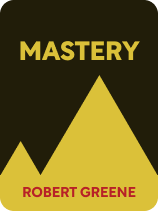

This article is an excerpt from the Shortform book guide to "Mastery" by Robert Greene. Shortform has the world's best summaries and analyses of books you should be reading.
Like this article? Sign up for a free trial here.
Do you want to master a new skill? Besides the ins and outs of the skill itself, what should you know?
In Mastery, George Leonard contends that pursuing mastery can yield a lifetime of rich experiences and personal growth. He shares five lessons to help you start on the master’s path today: get instruction, see your skill as a practice, submit to the process, visualize learning, and push to the edge.
Continue reading to understand each of these lessons in more depth.
Mastery’s Five Core Lessons
If you want to master a new skill, Leonard says that you should find a great teacher, look at “practice” as a noun, let go of results and get on with the process, mentally rehearse your growth, and challenge the limits of the skill and your abilities. Let’s take a good look at each of these points.
#1: Get Instruction
Leonard says that, while it’s possible to learn skills on your own, the best learning happens under the guidance of a skilled instructor. This is because teachers can tailor their instruction to your specific needs as a learner. Your teacher can give you precise, specific feedback, demonstrate the forms and techniques of your skill, offer encouragement, and mentor you through your unique challenges. In contrast, you’ll spend a lot of time trudging through territory that’s already been mapped if you try to learn on your own.
To find a great teacher, pay attention to the following factors:
- Lineage: While this is an old-school consideration, Leonard argues that your teacher’s lineage matters. If you can trace a line of teachers back to a reputable and well-established school in their field, you’ll know they’re well-grounded in the skill.
- Teaching style: Look for an instructor that balances positive and negative feedback in a roughly 50/50 ratio. That is, they’ll offer both words of encouragement and constructive critique, but not too much of either.
- Patience: The best teachers, Leonard says, are those who embrace the challenge of working with the least talented pupils. If a teacher is patient, compassionate, and sincere with slower learners, you know they have the heart of a master teacher.
Finally, Leonard recommends that you be ready to break it off if, even after you’ve chosen a good teacher, the student-teacher relationship doesn’t work out. Teachers, like anyone, are only human. If you feel uncomfortable or like you just aren’t learning effectively, know that it’s alright to say goodbye and look for someone else to guide you.
#2: See Your Skill as a Practice
In the end, the way of the master is practice. Leonard explains that we should understand this word in two ways:
- As a verb, meaning to regularly engage in your chosen skills.
- As a noun, meaning your practice as something you have, live, and embody.
That latter sense is more important, for a master is most interested in practice as an end in itself. In other words, the practice itself is the point and path, and masters live primarily for their practices. Results are secondary to everyday immersion in the essential, ongoing practice of your skill.
At first, practice will probably seem tiresome. However, Leonard contends that over time, it transforms into something deeply alive—a time and space into which the master fully immerses himself in the exploration of the nuances and subtleties of his craft. For instance, you could spend a lifetime exploring the endless scales, chords, intervals, and other musical patterns on the fretboard of a guitar. Even one chord, containing three or four notes, could be “voiced” or played in various ways, placed in myriad positions across the fretboard, and combined with hundreds of other such chords to create thousands of variations, thousands of sounds.
From the basic moves, which the master returns to time and again, to the advanced techniques, this way of approaching practice allows for lifelong cultivation and refinement of your skill.
#3: Submit to the Process
The master’s path is thus to continually learn and to do this requires surrender, according to Leonard. Surrender means letting go of your ego or any pretense to skill that you carry. If you clutch onto some idea that you’re already good enough or you always know what’s best, you’ll be too preoccupied with protecting your sense of self to truly learn anything. Leonard explains two ways in which you must surrender.
First, you must surrender to your teacher: Having already made sure you have a good teacher, trust what they have you do—no matter how ridiculous it seems. Right now, they’re the master, and you have to trust that they know what’s best for the beginner (you).
Second, Leonard says, you must surrender to your ignorance: To learn requires that you be willing to look foolish. At first, you’ll be bad at whatever new skill you try to learn. However, floundering and flailing is precisely the mistake-driven learning process that takes us forward. If you’re unwilling to look foolish, though, you won’t make progress because you’ll be afraid to make mistakes or look like you’re bad at something.
According to Leonard, the true master is an eternal beginner, always willing to play the fool. This is because with any sufficiently complex skill, there’s always more to learn—for each step you take, there are always two more that arise on the road ahead. Thus the master walks her path not to reach results, but to sink ever deeper into the mysteries and challenges of her chosen skill.
#4: Visualize Your Growth
According to Leonard, the best learners use visualization, or mental rehearsal, to cultivate their skills. Leonard argues that this technique is the one key that high-performing athletes, businesspeople, and artists use to perform at higher and higher levels of skill. Mental rehearsal simply means creating in your mind a clear, vivid image or scene of a move or technique that you’re learning. For instance, you might visualize yourself performing a difficult passage on the piano or executing a perfect kickflip on the skateboard.
Visualizing in this way allows you to create a precise, focused template that your body will then follow when you go to perform the move in real life. According to Leonard, visualization trains your mind to start forming the circuits you need to execute that move as if by habit. The more you rehearse it—and the more vividly you do so—the stronger these “preconditioned” habits become. Ultimately, this is the master’s best technique for isolating and refining specific moves and techniques, and it accelerates the learning process beyond what practice alone can do.
#5: Push to the Edge
Lastly, Leonard writes that masters tend to be people who push to the edge of what’s possible in their chosen fields. While masters also deeply love the basics and will practice them for many hours, they also feel drawn to explore the outer limits of what they can do. For instance, a master snowboarder will have spent countless hours refining his basic balance, jumping, and landing techniques—all of which enable him to try to pull off tricks like the quadruple backside cork 1980, one of the hardest snowboarding stunts ever performed.
While this only comes after many years of training, Leonard says that it’s the ultimate affirmation of life—an exhilarating move to express your skillfulness in its fullest strength and to discover what you’re capable of by pushing beyond anything you’ve achieved before.
(Shortform note: Above, Leonard draws attention to a valuable concept but stops just short of explaining how you might explore your edges. However, Josh Waitzkin (The Art of Learning) offers a concrete method that you can use to explore beyond the bounds of your field’s established techniques. You can move past your edges, he explains, by recording yourself during practice and looking for subtle, instinctive moves you make without conscious intent. For instance, he recorded himself during high-level sparring with a martial arts partner and then analyzed the footage to discover new, instinct-based moves they came up with in the heat of the moment. He then practiced and formalized them as new techniques.)

———End of Preview———
Like what you just read? Read the rest of the world's best book summary and analysis of Robert Greene's "Mastery" at Shortform.
Here's what you'll find in our full Mastery summary:
- How to walk the path of the master by being disciplined in your skill or art
- Why mastery isn't an end goal, but rather a continual process of learning
- Why the master's path is the only guaranteed way to live a fulfilling life






